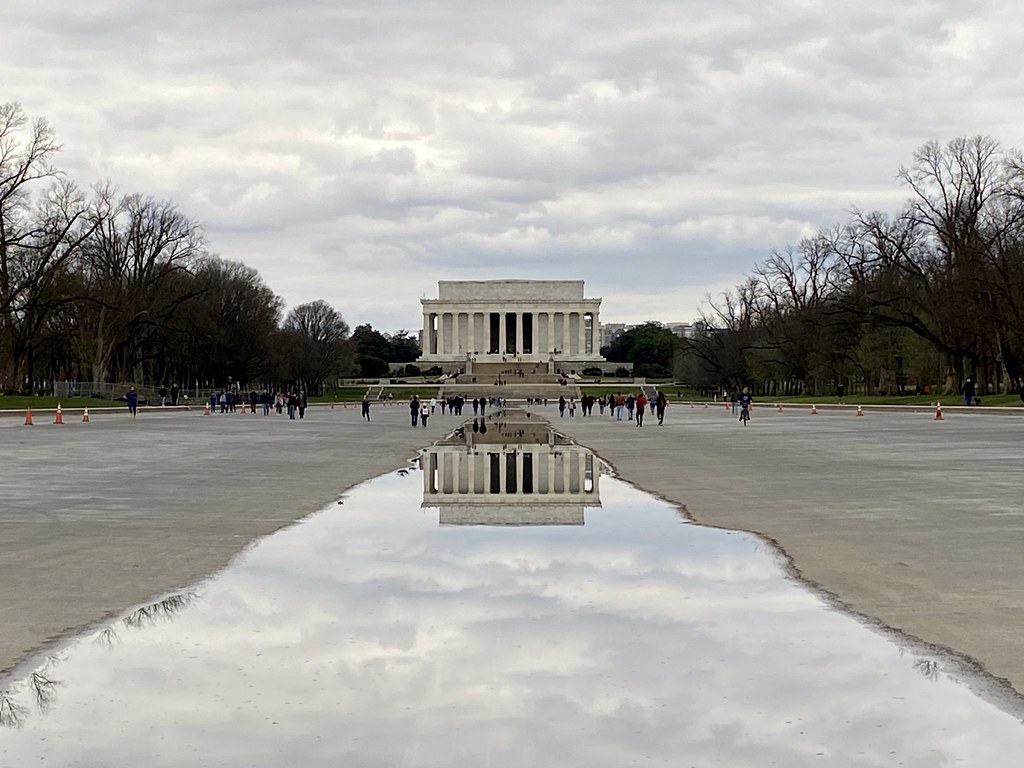The Lincoln statue was a surprise.
I had biked to National Harbor to look at The Awakening. During this pandemic year, one invents activities to pass the time.
The Awakening is an aluminum sculpture of a giant emerging from the earth. Formerly at Hains Point, it was moved downriver a few years ago to National Harbor, the hotel/casino/shopping complex in Maryland.
The sculpture was blocked off by fences so I took the opportunity to bike around the abandoned streets of National Harbor, idly coasting by shuttered restaurants and stores until I spotted the Great Emancipator.
The rail splitter can be found on American Way, right by South Moon Under, up the steps from Potbelly. Lincoln overlooks a video screen (“Good morning from National Harbor: Capitalize on it all!”) and a massive Ferris wheel on a pier jutting out into the Potomac.
I just finished Lincoln on the Verge, the powerful and moving story of this common man advancing toward death and destiny.
If his statue in National Harbor could come to life, what would he think of America in 2020?
I think he would be pleased that we lasted so long.
He would be delighted by people of all races enjoying a stroll along the promenade. The bright colors and carnival wheel would be charming diversions to him. But the old boatman would be most pleased to be within sight of a river.
Plague would not surprise him. Death and sickness were old friends. He often talked with the dead, believing that they existed in a spirit world that was within reach.
Leaving his home in Springfield in 1861, he did not expect to return. Just getting to Washington required providence, as he was nearly done in by overly exuberant crowds and gangs of assassins, as depicted in Lincoln on the Verge. Four years later, he returned home, in a coffin, his route retracing his earlier rail journey.
Unlike other politicians of the era (who remembers anything James Buchanan said?), Lincoln’s words live on because he spoke clearly and directly. We’d call this authentic. To the people of 1861, who had suffered decades of sophisticated oratory to protect the institution of slavery, this was electrifying.
Elites in the cities scoffed at his homespun tales. But if he was liberated from his bronze, and was free to walk around National Harbor, he’d have a comforting story for listeners:
It is said an Eastern monarch once charged his wise men to invent him a sentence to be ever in view, and which should be true and appropriate in all times and situations. They presented him the words, “And this too, shall pass away.” How much it expresses!
This too shall pass. Lincoln inherited a broken country and in four short years created an America worthy of its ideals. He knew he didn’t have long. But he endured and triumphed. We will too.



